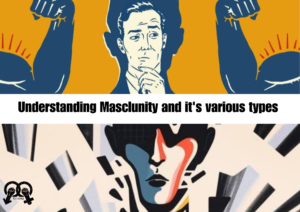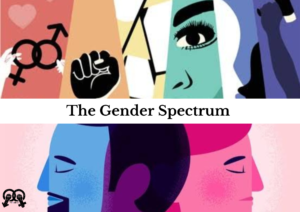Learning Outcomes:
- What is Petro-Masculinity?
- What are the various manifestations of Petro-Masculinity?
- New concepts include Petro-Cultures, Ecofeminism, Petro- Sexual Violence, Climate Imperialism, Eco-Modernism etc.
“Using fossil fuels can feel like a moment of agency, of control, in a world that feels increasingly out of control”
Cara Daggett
Why is Petro-masculinity more relevant than ever today?
Fossil fuels can serve political, subjective and cultural meanings that go beyond their everyday understanding of the economy as well as the environment. This idea has given a new direction to studying the exploitative nature of the fossil fuel industry.
In the article titled, Petro-Masculinity: Fossil Fuels and Authoritarian Desire, Cara Daggett of Virginia Tech, takes on a feminist reading of climate denial ( i.e. denying the responsibility of climate change) and fossil fuel boosterism in new authoritarian movements in the West in order to interrogate the entanglement of masculinity and fossil fuels. This is an important piece of literature as the intersection of gender and energy remains understudied.
Petro-masculinity approaches masculinity as a socially constructed identity that emerges within a gender order that defines masculinity in opposition to femininity and this results in a power relation between men and women as groups.

Patriarchy and the Fossil Fuel Industry Complex
So, the question is how a piece of coal generated from the fossil fuel industry upholds the idea of patriarchy
In the paper, ‘Cool Dudes: The Denial of Climate Change among Conservative white males in the United States’, the authors argue that white, conservative American men-regardless of class are among the ‘most vociferous climate deniers’ and ‘leading fossil fuel proponents in the West.
Sherilyn MacGregor argues that environmentalism has become masculinised as a result of the dominance of science and security frames for understanding climate change. This frame has been the traditional domain of ‘Hegemonic masculinity’ (check out what ‘Hegemonic Masculinity’ means) that has led to the ‘downgrading of ethical concerns like justice, health and economic equity’. The idea has become more relevant than ever, as the world discourses on climate change.
Diptesh Chakraborty in his work, ‘The Climate of History: Four Theses’ argues that most of our freedoms (modernisation and industrialisation) so far have been ‘energy intensive’. Timothy Mitchell argues that the fossil fuel industry has been a setback to democracy as the West, boasts of a democratic creed while simultaneously supporting the authoritarian and racist regimes in the Middle East and North Africa.
Fossil Fuels and democracy have been believed to be natural partners; this narrative has been crucial not only to the American identity but also the hegemonic white masculinities. The white Petro-Masculinity was built in the mid-20th Century, wherein the US post-war economy and fossil fuel systems functioned as a means to becoming a real man and burning them entailed violence.

Friends of Coal heavily relied on the traditionally aggressive masculine symbols tying the symbol of coal to football, hunting, fishing and provider and defender icons. Trump’s ‘dig coal’ campaign associated mining jobs with masculine identity. Through Petro-Masculinity, climate denial is best understood through desire. It is based on the righteousness of fossil fuel lifestyles. In the case of climate denial, one also subscribes to the accelerated investment in Petro-Cultures (widespread development of public infrastructure with the rise of late capitalism in the 21st century based on the easy supply of petroleum-based resources) intensifying the fossil fuel systems.
Examples of Petro-masculinity effect in Art, Culture and Laws
Petro-Masculinity has also been an area that has been touched upon in films and art. It can even change the way the politics of climate change work.
The 2021 film Werewolves Within, directed by Josh Rube, features Sam Parker, who is the bigwig energy executive who is attempting to stoke the flames of a pro-pipeline sentiment, embodies a visible kind of Petro-Masculinity, “oil-soaked and coal-dusted” white conservative North American masculinity to be specific while another character Emerson belongs to the remote community of the forest land to be exploited. This has been analysed by Richelle Wilson, University of Wisconsin-Madison. Priyanka Vittal in her work, ‘The oil and gas industry is inherently misogynistic’, Greenpeace Canada, argues that the rise of ultra-right-wing ideology from the United States has seeped into energy politics in Canada in recent years, leading to the rise of Petro-Masculinity. The case of the Canadian Climate Regime and the environmental laws serves as an example. IrishEvs is an example of male gatekeeping and gender politics in the context of the disproportionate impact of personal vehicles on climate change. In her work ‘The Death of Nature: Women, Ecology and Scientific Revolution’, Carolyn Merchant quite vividly describes the imagery of exploitation of nature as the rape of women.
The Global South and Petro-Masculinity
The Global South, as the phenomenon is called Climate Imperialism, (refers to the continued suppression of the Global South by people in the Global North, and the unequal effects of climate change) bear the disproportionate impact of climate change, however, it is to be seen how Petro-Masculinity works out in this context. According to Cara Daggett from this perspective, the resurgence of the far right is on the rise across Western history and has been hell-bent on defending the genre of Man that privileges white men and Western capitalism and recognition of climate change bring about a violent Ethno-Nationalistic reaction. This also hinders any international joint effort as it is dismissed as ‘globalism’ (the ideology that is based on the belief that people, information, and goods should be able to cross national borders unrestricted) as this is seen by the US as an infringement on her power and hegemony. The denialist stance narrated by Scott Pruitt, head of the US Environmental Protection Agency, is an example. A greater focus on consumerism and productivism takes our focus away from exploitative and unjust corporate and elite power, which determines almost everything.
Ecofeminism, Petro-Sexual Violence and the Fossil Fuel Industry
The news of local areas remains under noticed. But, here’s how locally based eco-feminism is fighting against this wave of Petrol Masculinity. Petro-Sexual violence (A lens used to better understand the relationships between petroleum and gender violence and the role colonial powers possess) draws our attention to the justification of the linkage between Ecofeminism ( i.e. An attempt to bring together feminism and environmentalism, ecofeminism argues that the domination of women and the degradation of the environment are consequences of patriarchy and capitalism) and the fossil fuel industry.
As Heather M. Turcotte, in her path-breaking work, Contextualizing Petro-Sexual Politics, examines, in a framework of Petro-Sexual politics which links histories of petroleum and gender violence together in the Niger Delta. Her study is mainly based on African feminist histories with greater attention to the gendered and racialized structures within post-colonial structures. The amount of literature available on this complex intersectionality is meagre. A recent article by Lisa Goldner published in the Greenpeace organization’s stories, throws light on the issue of Petro-sexual violence in the fossil fuel industry, particularly in the Global South. It argues that the industry’s resource extraction projects reportedly go hand in hand with a surge in sexual violence against women, especially indigenous women and gender minorities. The classic example is the Balken “oil boom” in North Dakota. In 2021, the fossil fuel industry had the largest gender gap, which consequently leads to low representation of women at the policy-making table. It is also to be noted that Uganda’s (a country whose economy is highly dependent on agriculture and forest resources) feminists are fighting back against oil-industry land grabs in the Bugoma Forest.
The Future of Petro-Masculinity

Daggett Cara, Petro-Masculinity: Fossil Fuels and Authoritarian Desire,published by Millennium: Journal of International Studies, 2018 Vol47(1) 25-44 retrieved from the Sagepub Journals
https://doi.org/10.1177/0305829818775817
https://journals.sagepub.com/doi/full/10.1177/0305829818775817
Namanya Sostine, Chirstine Bwailisa, How Uganda’s eco-feminists are fighting back against oil-industry land grabs, published in OpenDemocracy, 8th March,2021, retrieved from https://www.opendemocracy.net/en/oureconomy/how-ugandas-ecofeminists-are-fighting-back-against-oil-industry-land-grabs/
Daggett Cara, The Melodrama of Climate Change Denial, published by Green European Journal, 11th March,2020, retrieved from
The Melodrama of Climate Change Denial
Petro-masculinity-Gender and the Climate Crisis, published by IrishEVs, retrieved from
https://www.irishevs.com/petro-masculinity-gender-climate-crisis
Pike, Cara, Eco-feminism and Fossil Fuels: Its time to shift the narrative, published by Philanthropy Women retrieved from
Eco-Feminism and Fossil Fuels: It’s Time to Shift the Narrative
References
Daggett Cara, Petro-Masculinity: Fossil Fuels and Authoritarian Desire,published by Millennium: Journal of International Studies, 2018 Vol47(1) 25-44 retrieved from the Sagepub Journals
https://doi.org/10.1177/0305829818775817
https://journals.sagepub.com/doi/full/10.1177/0305829818775817
Namanya Sostine, Chirstine Bwailisa, How Uganda’s eco-feminists are fighting back against oil-industry land grabs, published in OpenDemocracy, 8th March,2021, retrieved from https://www.opendemocracy.net/en/oureconomy/how-ugandas-ecofeminists-are-fighting-back-against-oil-industry-land-grabs/
Daggett Cara, The Melodrama of Climate Change Denial, published by Green European Journal, 11th March,2020, retrieved from
The Melodrama of Climate Change Denial
Petro-masculinity-Gender and the Climate Crisis, published by IrishEVs, retrieved from
https://www.irishevs.com/petro-masculinity-gender-climate-crisis
Pike, Cara, Eco-feminism and Fossil Fuels: Its time to shift the narrative, published by Philanthropy Women retrieved from
Eco-Feminism and Fossil Fuels: It’s Time to Shift the Narrative





